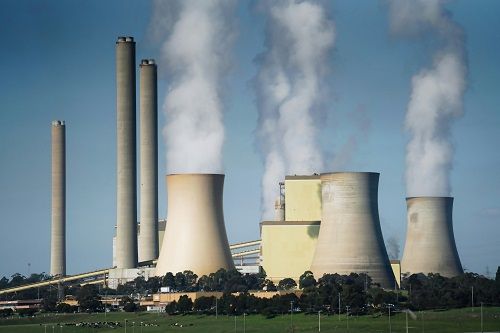It is a remarkable development: just a few years ago, renewable energies had to be laboriously promoted and expanded, against fierce resistance and with a great deal of political courage. Today, however, we are witnessing a paradoxical turnaround: it is no longer renewables, but fossil fuel technologies - such as 20 new gas-fired power plants - that are now to be promoted with billions of euros in additional surcharges on electricity prices. This is not only an ecological and, above all, economic mistake, but also a sobering indictment of our country's energy policy. – A commentary by Markus W. Voigt, CEO of aream Group SE.
The fact that these high subsidies are necessary at all is first and foremost, a sign of how infrequently the new gas-fired power plants are likely to be needed. Renewable energies have firmly established themselves in the market – despite initial scepticism and political headwinds. Wind and solar energy now provide reliable electricity at competitive prices. The necessary storage solutions, sector coupling, grid expansion and grid intelligence are constantly evolving. The energy transition is no longer a vision for the future; it has long since become reality.
Well before the new reserve gas-fired power plants are commissioned, Germany's electricity supply will be far more resilient than it is today, rendering many of these gas-fired power plants redundant from the outset. In addition, Germany will also be more deeply integrated with other countries, allowing for cross-border planning of the necessary reserves. The proposed levy of 2 cents/kWh will simply drive up electricity prices – without making our energy system more sustainable. And that is precisely why these planned fossil fuel subsidies are so questionable.
These funds are being invested in outdated, unsustainable technologies. Gas-fired power plants are neither climate-friendly nor economical viable. Germany lacks significant domestic gas reserves, making it once again dependent on fossil fuel imports, along with all the geopolitical risks that this entails. Creating new fossil fuel dependencies after the costly withdrawal from Russian gas is a step in the wrong direction.
It also blocks urgently needed investments elsewhere. The real central challenge of the energy transition is not electricity generation – that has long been solvable with renewables – but storage and distribution. However, although storage facilities are now technically mature and economically attractive without any subsidies, yet their rollout lags far behind potential. Not because of a lack of capital, but because it is being misallocated. While gas-fired power plants are set to receive billions in subsidies, grid operators are flooded with applications for storage projects. Many of these are stalled by slow approval processes and a lack of grid connections.
Subsidising gas-fired power plants primarily serves the interests of the fossil fuel industry – and is also intended to allay the irrational public fear of so-called‘dark doldrums’. But instead of investing in oversized backup capacities, investments should be made in strengthening decentralised structures, storage, grid modernisation and load management, as well as cooperation with other European countries. That would be much more efficient and future-proof.
The success story of renewables is closely linked to their decentralised nature. Citizen energy cooperatives, municipal projects, local value creation: all of this strengthens social acceptance and ensures participation. Subsidies for centralised gas-fired power plants, on the other hand, reinforce an outdated structure that relies on a few large players and centralised control.
One more point: while subsidies for renewables have been and continue to be reduced because the technologies have achieved market maturity, the opposite is to be expected for gas-fired power plants. The rising price of CO₂ will massively increase their operating costs and thus also the need for subsidies. What is being sold today as a security solution will become a bottomless pit costing billions tomorrow.
Subsidising too many gas-fired power plants is therefore an expensive, backward-looking mistake. It hinders the necessary restructuring of the energy system, creates new dependencies and prevents investment in truly promising technologies.
PRESSEKONTAKT:
Leandra Kiebach
T: +49 (0)211 30 20 60 4-2
E: lk@aream.de
